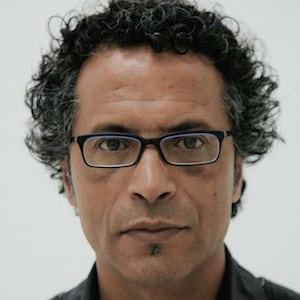Introduction
The Arabic language program at MESAAS is one of the largest and most successful programs of its kind in the country. Many of its students have gone on to receive fellowships for language study abroad and other awards.
The program offers courses at four levels, as well as graduate reading seminars. Each level is taught over two semesters. The content of fourth-year courses and seminars changes from year to year, so they can be taken more than once. This means that students can pursue the study of Arabic for five or six years if they choose, well beyond the four-semester foreign language requirement set by Columbia College.
Students are encouraged to consider taking an intensive summer Arabic course. See the description of the Columbia Arabic Summer Program in New York and the Columbia Arabic Summer Program in Amman, Jordan. Or ask the Acting Arabic language coordinator, Taoufik Ben-Amor, about other summer programs in the United States and abroad.
The department also offers a course in Arabic for Heritage Speakers (students who were exposed to Arabic at home or when they were young, but are not fully literate). The course combines the curriculum of First and Second Year Arabic in a single year.
The philosophy of the Arabic language program is to teach Arabic as a living language to a diverse body of students with a wide range of academic and professional needs. In order for us to do that, our courses aim to develop all five skills, namely listening, speaking, reading, writing and culture. Students are exposed to authentic materials (audio, video, and text). Our goal is to train students to be able to read and listen to primary sources, write on academic topics with control of registers, and to converse with Arabic speakers anywhere in the world. Our curriculum is designed according to the Standards for Language Learning and the ACTFL Proficiency Guidelines.
Arabic courses in MESAAS have special registration procedures. Please click on the link on the right to see the Guidelines for Registrations.
For placement exam times and locations, click here.
Objectives of the Program
First Year
- Read and write in Arabic (i.e. be familiar with the letters and the sounds).
- Initiate, respond to, and maintain simple conversation on familiar topics, such as who you are, what you do, your family, and your studies.
- Read simple passages on familiar topics and understand their content with the help of a dictionary.
- Write simple compositions on familiar topics, such as your typical day, a description of your family, or your hometown.
- Start becoming familiar with certain aspects of Arab cultures and societies.
Third Year
- Read and understand various types of newspaper articles (descriptive, narrative, argumentative, etc.), and essays and literary texts on various topics, with the help of a dictionary.
- Listen to and understand the main points of a speech, lecture, or news broadcast.
- Discuss a number of general and specialized topics and be able to describe, narrate, argue a point, and express opinions.
- Write cohesive and articulate summaries, accounts, and critical pieces about the same topics.
- Begin to recognize and use formal and informal registers in appropriate situations.
- Learn about the history, politics, cultures, and societies of the Arab World.
Second Year
- Discuss general and specific topics, such as traveling, mass media in the Arab world, and Arab universities.
- Understand the main points of lectures and radio and television news programs.
- Read and understand the main ideas of any non-technical text with the help of a dictionary.
- Write short compositions on familiar topics and express opinions.
- Research, discuss, and be familiar with a number of issues pertaining to Arab cultures and history.
Fourth Year
- Read and understand a wide range of fiction and non-fiction texts from the modern to the classical period on various topics with the limited help of a dictionary and learn how to use Arabic sources and references for research.
- Listen to and understand the main points of a speech, academic lecture, or news broadcast.
- Discuss a number of specialized topics and be able to describe, narrate, argue a point, and illustrate with examples.
- Write long cohesive and articulate summaries, accounts and critical essays about the same topics with use of stylistic devices and idiomatic expressions.
- Recognize and use formal and informal register and style in appropriate situations.
- Research and learn about major topics in the history, politics, cultures, and societies of the Arab world.\


